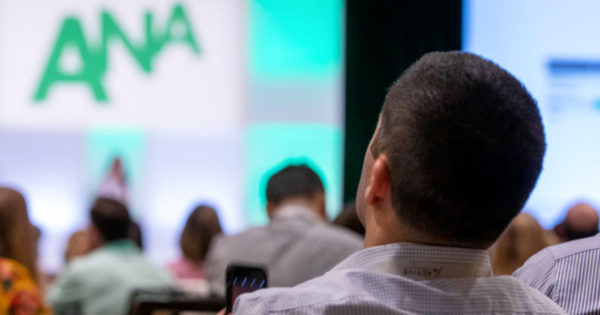
For this year’s ANA Masters of Marketing conference, brands gathered around the computer screen instead of down in Orlando, Florida. But the virtual event was still full of big names, from marketers like Delta, DoorDash, Unilever, Procter & Gamble, Lego, Walmart and more. Executives discussed the buzziest topics in marketing today, from brand safety issues surrounding hateful content on social media platforms to the renewed need for advertisers to take a stand on the year’s political and cultural upheaval.
On the virtual stage, top marketers from around the globe shared experiences and offered lessons and insights on the past year in advertising and how marketers can find success within their own organizations. Below, ten takeaways from the conference.
Eliminating hateful content on social platforms continues to be a priority.
But it’s not necessarily marketers’ responsibility to do so. That’s according to Marc Pritchard, chief brand officer of Procter & Gamble and ANA chairman, who said that the board had met with the platforms over the past week to “review plans and timelines for eliminating hateful content.” However, Pritchard said that the bulk of the responsibility should be on the platforms to control the content. For marketers, their job is to “spend time on creativity, innovation, doing good, and driving growth,” rather than “wasting time monitoring bad content.”
Corporate philanthropy goes hand-in-hand with financial success.
This year’s events have made taking a stand and working towards positive change a non-negotiable for brands. But what’s important for companies to realize, Manos Spanos, Danone’s SVP Brand Marketing said, is that it’s not just about being a necessary PR move, but an essential one for the success of the brand as a whole, too.”Good for business and good for the planet is not a mutually exclusive thing,” he said. “Use your brands to do more.”
Use difficult moments as learning opportunities.
Facebook is still reckoning with an advertiser boycott that led to over 1,000 companies pulling their ad dollars from the platform. But Carolyn Everson, Facebook’s vice president of global marketing solutions, said that it was a further push for the company to find solutions and make bigger moves when it came to combating hateful content on its websites and apps, like a stronger crackdown on QAnon content. “It was a very rough summer, the most difficult summer I’ve ever had professionally for sure. But sometimes, through those most difficult moments you understand what really matters, and actions matter,” she said. “I’m thankful for the push we got because I think it’s making us better.”
Having ambitions as a brand is more than just a goal, it’s about exerting influence.
For General Motors, using that influence is about more than convincing consumers to buy a GM automobile; it’s about the company leading the charge in the transition to electric vehicles. That’s the word from CMO Deborah Wahl. “In stating that mission, GM was accepting responsibility for many things that are not within our direct control, but they are within our influence,” she said. “To meet this commitment, we will need to reshape global transportation. And most importantly, we need to convince everybody that drives to switch to electric.”
Recognize the power of advertising, and how it’s been negatively wielded in the past.
Esi Eggleston Bracey, Chief Operating Officer, Unilever N.A. Beauty and Personal Care, said that it’s undeniable that advertising has been used—whether consciously or not—to perpetuate stereotypes. The Black community has been a particular victim of this form of bias. Marketers, she said, need to not only be conscious of that, but actively work to make change. One way Unilever is doing so is through The Crown Act, which stands for “Create a Respectful and Open World for Natural Hair.” The law, which Dove has supported, will prohibit race-based hair discrimination and has passed in seven states.
https://www.adweek.com/brand-marketing/11-takeaways-from-ana-masters-of-marketing/

